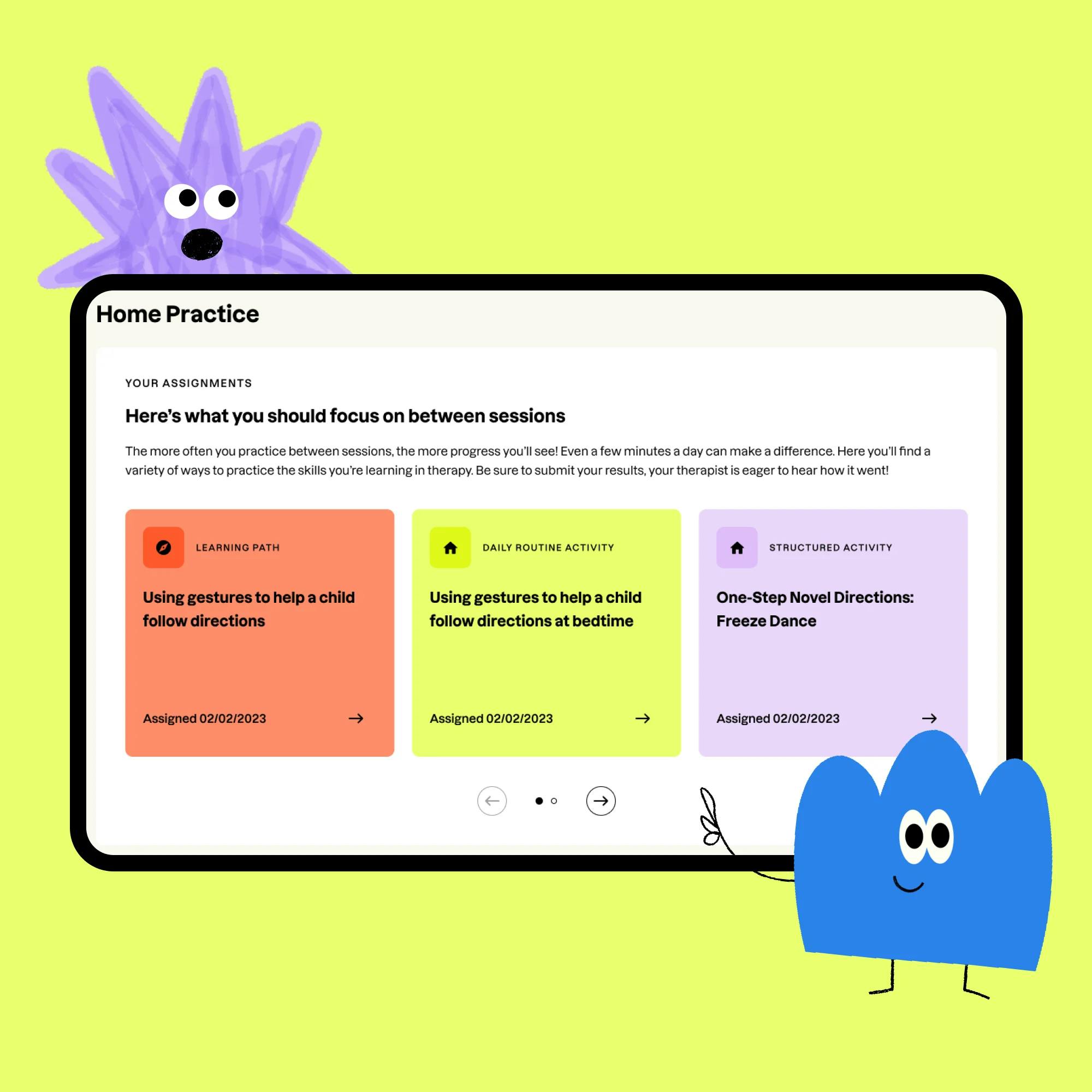Setting Up Home Practice for Speech Therapy Success
Today, I’m sharing some tips for setting up home practice sessions–and keeping your child interested in them! When it comes to improving speech, regular practice with a caregiver, done throughout your everyday routine, is one of the best ways to see progress.
So how can you keep your child interested in working on speech? If they’re not motivated, they’ll be less eager to practice. Figuring out what keeps your child excited about speech practice is one of the most important things you can do on this journey!
First, let’s talk about some ways to set the stage for motivation.
Believe it or not, picking the right time of day for practice is a huge deal. Try to practice at a time of day that’s distraction-free, and when your child is more likely to want to interact. Think about your schedule–when are you most available? Then think about your child’s personality during their day. Are they typically happier and more talkative in the mornings or evenings? Find a time that works best for both of you.
Next, make a schedule! Not only will this keep you both accountable, it will allow you to devote all your attention to your child at the appointed time.
Here’s another tip that’s essential: You have to find a highly desired activity for your child to do while practicing. As a speech-language pathologist, I can tell you, this is a key piece of the puzzle. For some kiddos, I select interactive games. For others, reading activities, crafts, or physical activities are best. It just depends on what they enjoy most.
Think about what your child loves to do in their free time and start there. The beauty of speech practice is that you can target speech goals by doing almost anything–without any fancy or expensive materials!
Let’s say your child likes to play games like Go Fish or Monopoly. Before each of your child’s turns, have them practice their target sound or word. If they love to play outside, practice while taking a walk or kicking a ball. Or have them say their target sounds or words before running through the sprinkler.
Whenever and whatever practice looks like for your family, at the beginning, keep the ratio of work to play one-to-one. That means your child practices one sound before each turn of the game. Or they practice one word before each basketball shot. With this approach, your child is immediately rewarded for practicing. This is a huge motivator, especially if they have a hard time staying engaged. Eventually, you can increase the amount of work they have to do before each activity.
So let’s review the key points for successful home practice:
Try to pick a specific time of day to practice speech with your child.
Choose activities that your child enjoys.
At the beginning, keep the ratio of work to play about equal.
Always remember, you know your child best. With a little planning, you can make speech practice fun and engaging for them–and for you!










